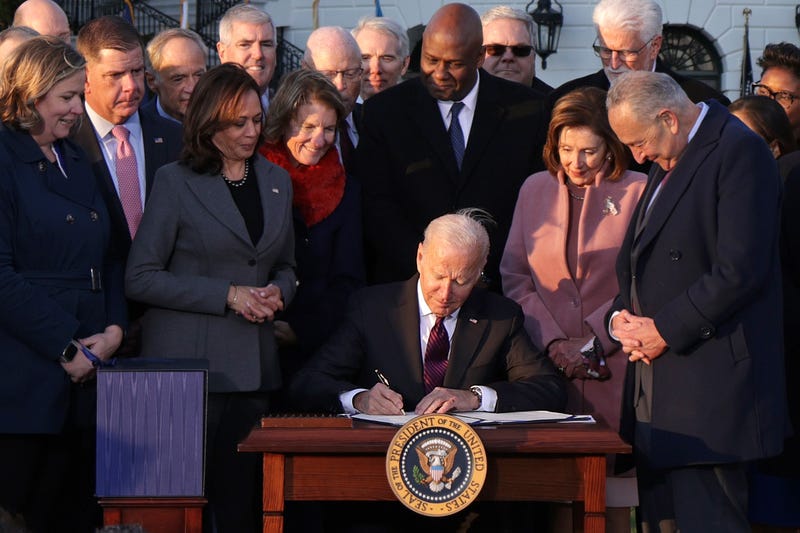
PHILADELPHIA (KYW Newsradio) — What's in the bipartisan infrastructure bill just passed into law? Highways and bridges, high-speed internet, electric vehicle charging networks and safe drinking water, among a lot of other things.
There has been a lot of talk about the price tag of the bill President Joe Biden signed, but not nearly as much about what is in it.

"The biggest number, about 20% of this bill - $110 billion - is going towards things that I think our listeners probably first have come to mind when they hear the word infrastructure," said Scott Deacle, Associate Professor and Department Chair of Business and Economics at Ursinus College in Collegeville, Pennsylvania.
"We're talking about new highways, new bridges, that sort of thing. And so that's going to just mean wider highways, more highways, new pavement on the highways, that sort of thing, replacing old bridges, fixing decrepit bridges, and really accelerating the process at which all of that happens."
But that part of the deal also includes billions for programs from electric-centered transportation to environmentally-friendly energy creation and rural broadband access.
Deacle dives into those and countless other aspects of the new deal, along with the compromises made to bring in Republican and centrist Democrats to vote for it.
Listen above in your podcast player, and get much more from KYW Newsradio In Depth here and wherever you get your podcasts.

